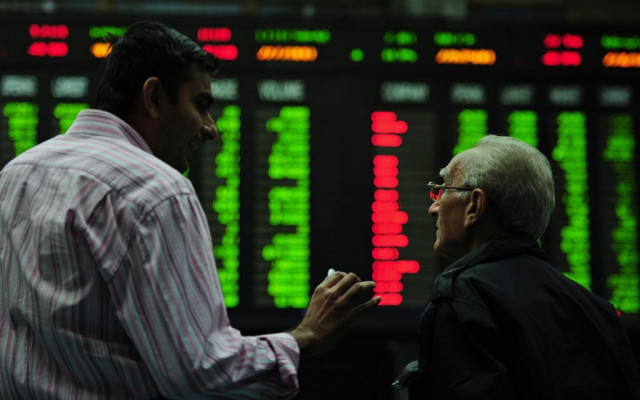Remarkable: KSE among top performers in 2013, says report
Posts an annual return of 37%, ranking 10th best in the list .

The Karachi Stock Exchange (KSE) remained the 10th best stock market in 2013 with its benchmark index posting an annual return of 49.4%, translating into a 37% return in dollar terms, according to global financial news service Bloomberg.
This is the second consecutive year when the Karachi stock market has been one of the world’s best-performing markets by posting a phenomenal return. The KSE-100 Index rose 48.9% in 2012 in rupee terms while the increase was 37% in dollar terms.
The best-performing stock market in 2013 in dollar terms was Venezuela, which posted a return of 296%. It was followed by Dubai (108%), Abu Dhabi (63%), Bulgaria (48%), Ghana (44%), Nigeria (44%), Kenya (43%), Argentina (42%) and Ireland (39%).
“The first democratic regime change in Pakistan’s history, coupled with foreign inflows, created positive sentiments in the market,” said Topline Securities research analyst Vahaj Ahmed. “Pakistan’s 2013 return of 49% compares favourably with the last 10 years and 20 years (of) average annual return of 28% and 22% respectively.”
Pakistan’s equity market in 2013 remained prominent in different indices managed by MSCI, which provides global benchmark indices for equity investments. For example, MSCI Pakistan gained 38% in 2013, which is higher than the 21% gain that MSCI Frontier Markets (MSCI-FM) posted in the same year. Moreover, in Asian frontier markets, Pakistan ranked first, outpacing Sri Lanka, Vietnam and Bangladesh by a significantly vast margin, Ahmed noted.
Higher foreign inflows played a significant role in making KSE one of the best-performing markets in the world. Foreign investors holding 36% free-float in the market and constituting 8% of KSE’s market capitalisation remained net buyers in 2013. “During the period, foreigners bought $2 billion and sold $1.6 billion (worth of equities), resulting in a net inflow of $403 million. It represents significant growth from last year’s net buying of $125 million,” Ahmed added.
In sheer percentage terms, the KSE-100 Index return was second only to Japan, according to Elixir Securities research analyst Fareesa Baig. Besides the first ever completion of a five-year term by a democratically elected government, she said Pakistan’s re-entry into the IMF programme and the European Union’s award of the GSP Plus status were some of the key positives of 2013.
The outgoing year saw an annual improvement of 29% to 223 million shares a day while the value traded depicted an increase of 64%, according to Taurus Securities research analyst Taha Khan Javed.
Cement and textile sectors remained the biggest outperformers in 2013 as per the changes in market capitalisation. On the other hand, the chemical sector remained the biggest underperformer in 2013 because of its inability to raise local prices due to falling international urea and di-ammonium phosphate prices and gas price uncertainty, Javed noted.
Published in The Express Tribune, January 1st, 2014.
Like Business on Facebook, follow @TribuneBiz on Twitter to stay informed and join in the conversation.



















COMMENTS
Comments are moderated and generally will be posted if they are on-topic and not abusive.
For more information, please see our Comments FAQ